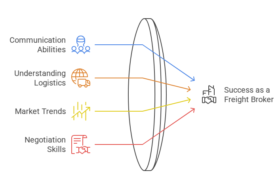Regulations and compliance are essential aspects of operating a box truck business. Compliance with local, state, and federal regulations ensures the safety of drivers, other road users, and the transported goods. Failure to adhere to these regulations can result in fines, penalties, and legal liabilities. In this article, we will explore some of the key regulations and compliance requirements that box truck businesses must consider.
Commercial Driver’s License (CDL)
Drivers operating box trucks with a Gross Vehicle Weight Rating (GVWR) of over 26,000 pounds or carrying hazardous materials must obtain a Commercial Driver’s License (CDL). CDL requirements include passing written and skills tests specific to the type of box truck being driven.
Hours of Service (HOS) Regulations
The Federal Motor Carrier Safety Administration (FMCSA) enforces Hours of Service (HOS) regulations for commercial drivers to prevent driver fatigue and enhance road safety. Box truck drivers must adhere to specific driving hours and mandatory rest periods to ensure they are well-rested and alert while on the road.
Vehicle Maintenance and Inspections
Box trucks must undergo regular maintenance and inspections to ensure they are in proper working condition. Regular maintenance helps prevent breakdowns and reduces the risk of accidents caused by mechanical failures.
Cargo Securement
Proper cargo securement is essential to prevent shifting and falling of goods during transit. The FMCSA has specific regulations on how cargo should be loaded, tied down, and secured based on its size, weight, and type.
Weight Limits and Overloading
Box truck businesses must comply with weight limits set by local authorities to prevent overloading, which can cause damage to roads and pose safety hazards. Monitoring the weight of cargo and ensuring it stays within legal limits is crucial for compliance.
Hazardous Materials Transportation
If a box truck business transports hazardous materials, it must comply with Hazardous Materials Regulations (HMR). These regulations govern the handling, labeling, and transportation of hazardous materials to ensure the safety of drivers and the public.
Insurance Requirements
Box truck businesses must carry adequate commercial insurance coverage to protect against potential liabilities and damages. The type and amount of insurance required may vary based on local regulations and business operations.
Drug and Alcohol Testing
Commercial drivers, including those operating box trucks, are subject to drug and alcohol testing as mandated by the FMCSA. This testing ensures that drivers are not impaired by substances while on duty.
Electronic Logging Devices (ELDs)
Box truck businesses must use Electronic Logging Devices (ELDs) to record drivers’ HOS data electronically. ELDs help ensure accurate and verifiable records of driving hours and rest periods.
Local Permits and Restrictions
Depending on the area of operation, box truck businesses may require specific permits or face restrictions on certain routes or within certain zones. Staying informed about local regulations is essential for compliance.
Conclusion
Regulations and compliance play a critical role in the safe and legal operation of a box truck business. By adhering to CDL requirements, HOS regulations, vehicle maintenance standards, cargo securement rules, and other relevant regulations, box truck businesses can ensure the safety of their drivers, cargo, and the public. Staying up-to-date with regulatory changes and maintaining proper documentation is crucial to avoiding fines and penalties and maintaining a reputable and compliant box truck business.








